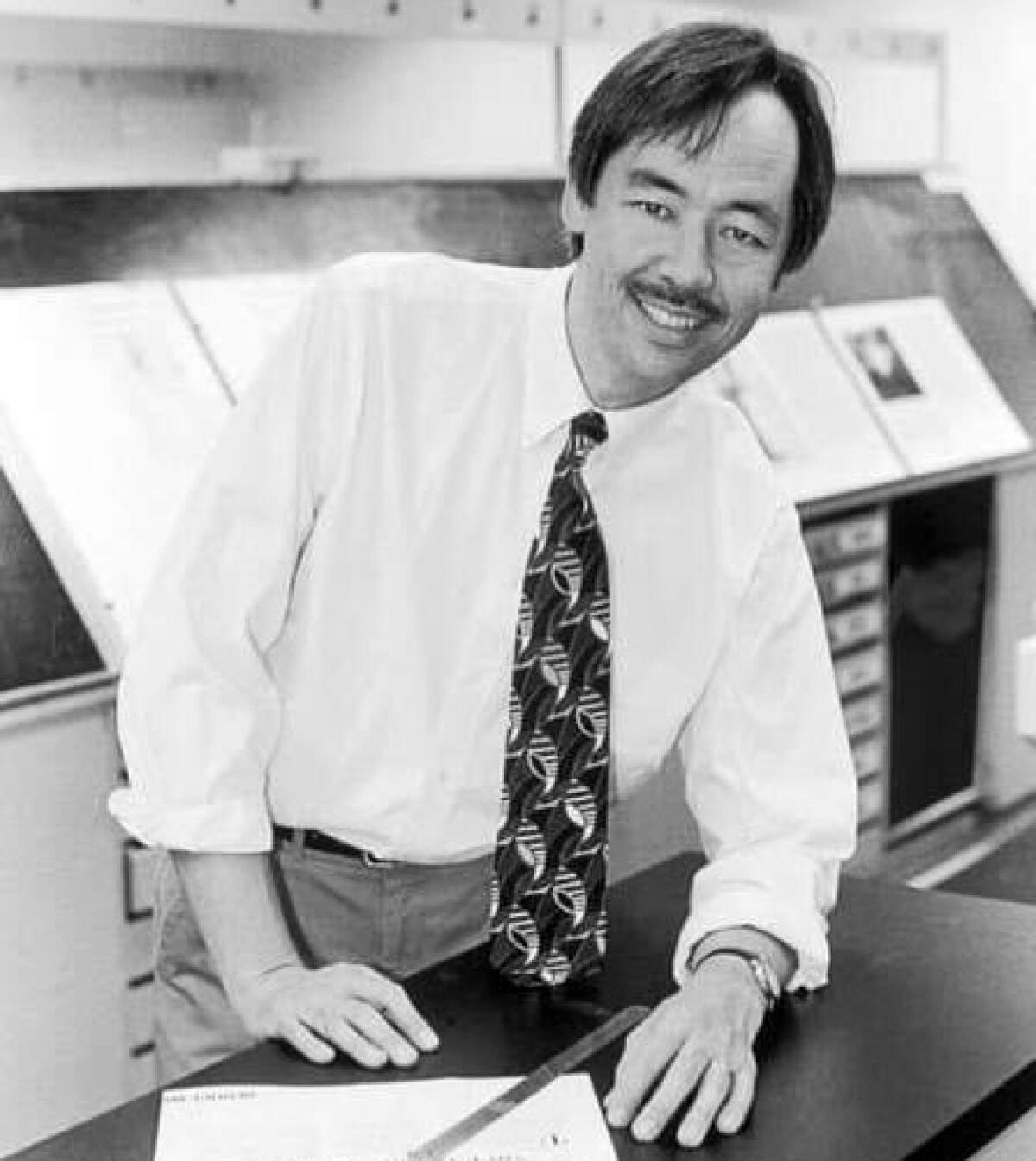In memory of Henry Fuhrmann, who believed in us before we believed in ourselves

Henry Fuhrmann, editor and mentor to generations of journalists at the Los Angeles Times, died earlier this month at the age of 65.
Henry was a brilliant editor passionate about language, whose work was instrumental in changing newspaper standards for describing immigrants and people from minority communities, and in guiding this paper’s transition online. Here I want to highlight an aspect of his work that was equally heroic: his care for the next generation.
I first met Henry at a journalism seminar organized by the Los Angeles chapter of the Asian American Journalists Assn. As a prize for correctly answering a question that I’m sure was quite trivial, he gave me a plain cream diner mug with black text: “Los Angeles Times Copy Desk.”
That mug meant so much to me. At the time I was fresh out of college, without steady work, connections or promising prospects in journalism. I took it as evidence that Henry thought I was good enough to work for the L.A. Times. I’ve kept the mug at every desk through every job I’ve had.
And I’m not the only one. I soon realized that Henry had given one to nearly everyone I knew in my journalism circles. The day I had earned mine, Henry had also given a mug to immigration reporter Adolfo Flores, a friend and fellow trainee in The Times’ minority editorial training program. He gave one to my friend Matt Stevens, now reporting for the New York Times, after a particularly gutting correction.
I found them at my friends’ desks, full of coffee or pens. Or in a place of honor above the fireplace at home. And even though we all seemed to have one, the mug never felt impersonal. It was a talisman of Henry’s genuine belief in us, given freely and generously. And it was usually paired with some kind, much-needed words.
Though Henry left the paper in 2015, his mugs can still be found across this newsroom and in others around America. He created the mugs to help build morale and community in the editing desks he ran for decades at The Times. But in the hands of the people he mentored, they have become symbols for Henry’s unique care for his community.
For those of us from immigrant families whose parents don’t always understand why journalism is worth the hours, a mug from Henry was a lifeline. He didn’t force us to win his approval, giving it unconditionally. He called us “rising stars” and “management material” long before we had any real achievements under our belt. And in trying to live up to the labels, some of us made them true.
I’ve come to see these mugs as Henry’s answer to a question that we all face, at least those of us who count ourselves as part of any kind of institution or community. What do we owe the generation that comes after us?
It never seemed to be a question for Henry. He gave himself freely to the task of training the next generation and always kept his door open to young reporters in the newsroom.
I also worked with him in the Los Angeles chapter of the Asian American Journalists Assn., where he served every role with the care reserved for jobs that, you know, actually pay you. He gave inspiring speeches and helped stack chairs and pick up trash afterward. He did jobs no one else wanted to do, especially the slow, often invisible work of consensus building.
He was eloquent enough to hold both sides of a conversation, and graceful enough to make you feel as though you had taught him something. He could make his way through a crowded room in half an hour and leave everyone feeling as though they had been heard. His optimism was infectious and as reliable as the sunrise.
In the outpouring of remembrances that have appeared online in the days since his death, you can see the seeds of kindness he planted flowering. It is stunning to see how many people he cared for and inspired. How many mugs are still cherished, coffee stains and all.
Like a lot of his mentees, I never got to properly thank Henry. It’s painful to think of the emails I never sent and calls I never placed.
But another way for this love and gratitude to find expression is by keeping his work going. Henry always strived to be kind and build community during stressful situations, and so can I. Henry always reached out to young, inexperienced or less fortunate people and saw the best in them, and maybe we can too.
Because even though he’s gone, we still have so much to learn from Henry. The lessons will continue.
More to Read
Sign up for Essential California
The most important California stories and recommendations in your inbox every morning.
You may occasionally receive promotional content from the Los Angeles Times.











